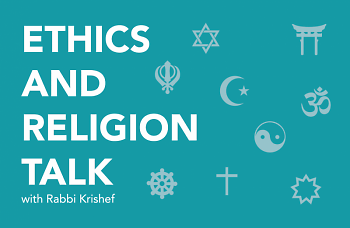The Reverend Colleen Squires, minister at All Souls Community Church of West Michigan, a Unitarian Universalist Congregation, responds:
“I have two consistent daily practices that help center me. During my morning cup of coffee, I take the quiet time to center myself to help begin my day in balance and at the end of my day I say prayers of both gratitude and concerns. During the pandemic I have needed more help to find balance. Working with wood or doing artwork helps calm my mind. During the pandemic I built a little free library which was the creative outlet I needed to help me sort out my worries and fears.”
Rev. Ray Lanning, a retired minister of the Reformed Presbyterian Church of North America, responds:
“Presbyterianism teaches that there are certain ‘outward means’ by which Christ ‘communicates’ or imparts and applies to us ‘the benefits of His mediation’ as our faithful Savior (Larger Catechism, Q. 154). All these ‘means of grace’ are sanctioned by God’s command and appointment. Among them are the reading of Holy Scripture, the singing of Psalms, and the offering of prayer to God. These means are most fitly and amply dispensed in public worship, but not confined to it. The pandemic of 2020 has not prevented Christians from enjoying and profiting from the use of these means.
“In fact this enforced season of retirement has afforded greater scope for concentrated study of the Bible. I have been soaking myself in the so-called ‘minor’ prophets, and the Book of Isaiah, that great source from which the apostles drew so much of their teaching and preaching. To complement my Bible study I have been using John Brown’s annotated version of the Scottish Psalter (1650) as my ‘diet of praise.’ And it seems to me that prayer takes on greater urgency, and affords greater comfort, against the background of our present trials and deprivations. ‘God is our refuge and strength, a very present help in trouble’ (Psalm 46:1).”
Father Kevin Niehoff, O.P., a Dominican priest who serves as Adjutant Judicial Vicar, Diocese of Grand Rapids, responds:
“I am fortunate to be a member of a religious institute of vowed men, the Order of Preachers… known as Dominicans. We all work in different types of ministries. Prior to the present pandemic sometimes our schedules got in the way of regular prayer. However, suddenly we were all home 24/7. The members of my community decided to pray morning and evening prayer together daily, and then the Mass focusing this prayer for those who could not receive the sacraments. For my part, I spend more time in personal prayer and praying the rosary. These practices make the difficult situation in which we find ourselves more tolerable. Then, with the onset of springtime and the warmer weather and gardening, I could enjoy the outdoors in God’s created beauty.
“The pandemic is still with us, and likely will be for a long time to come. I have now, through the grace of God, developed a deeper spirituality to continue to ground myself until a solution to this pandemic becomes available.”
The Rev. Steven Manskar, pastor of Trinity United Methodist Church in Grand Rapids, responds:
“The spiritual disciplines that ground me, particularly during the pandemic, are daily morning prayer, reading and studying the Bible, and meeting weekly with my accountability group.
“Daily prayer is shaped by Morning Prayer in The Book of Common Prayer. This habit keeps me grounded in Scripture and the Holy Spirit each day. Praying the psalms and prayers of the Church connects me to the communion of saints who prayed these same prayers. Reading, listening to, and praying with daily Lectionary connects me with Christians around the world reading the same texts. Morning prayer also includes a hymn, extemporaneous prayers for the world and the people of the congregation I serve. Daily morning prayer begins each day with Christ and surrounded by the communion of saints.
“For many years I’ve been part of a Covenant Discipleship group. It is a small group of 6 friends who meet weekly for one hour for mutual support and accountability for living a Christ-centered life. We each share what we have done and left undone as we each seek to witness to Jesus Christ in the world and follow his teachings through acts of compassion, justice, worship, and devotion under the guidance of the Holy Spirit.
“Reading and studying Scripture in preparation for preaching with the people of Trinity United Methodist Church is another discipline that keeps me mindful that God is with us now. Weekly sermon preparation and leading worship keeps me connected to the lives of the people and with God who is on mission in the world, inviting us to join in that mission.”
This column answers questions of Ethics and Religion by submitting them to a multi-faith panel of spiritual leaders in the Grand Rapids area. We’d love to hear about the ordinary ethical questions that come up in the course of your day as well as any questions of religion that you’ve wondered about. Tell us how you resolved an ethical dilemma and see how members of the Ethics and Religion Talk panel would have handled the same situation. Please send your questions to [email protected].
The Rapidian, a program of the 501(c)3 nonprofit Community Media Center, relies on the community’s support to help cover the cost of training reporters and publishing content.
We need your help.
If each of our readers and content creators who values this community platform help support its creation and maintenance, The Rapidian can continue to educate and facilitate a conversation around issues for years to come.
Please support The Rapidian and make a contribution today.
